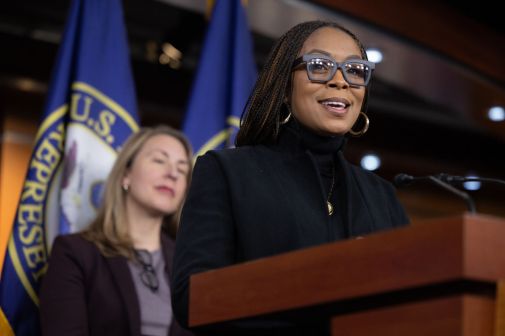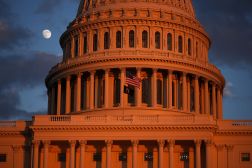Open Government Data Act set for progress in 2017 after Senate passage

A bill codifying and building on the president’s executive order and the White House’s Open Data Policy passed the Senate unanimously early on Saturday morning, in a surprising last-minute effort to get the bill through the chamber before the holidays.
The OPEN Government Data Act, which sets in place a presumption that government data should be published in an open, machine-readable format, will likely not make it to President Barack Obama’s desk. But the bill could be reintroduced next year.
“Because transparency keeps Washington accountable to the people, government data should be made public unless an administration makes a compelling reason not to,” said Sen. Ben Sasse, R-Neb., who introduced the legislation with Sen. Brian Schatz D-Hawaii, in a statement. “After passing the Senate with bipartisan support, we have momentum to carry this important work into the new year.”
Hudson Hollister, executive director of the Data Coalition, told FedScoop the bill is well positioned to pass next year, and that Texas Republican Rep. Blake Farenthold’s office told the coalition he plans to reintroduce the very similar House version of the bill again next year.
Hollister also noted that, “because the Senate has passed [this bill] unanimously … it bodes well for quick passage in both chambers when the new Congress begins.”
Center for Data Innovation Director Daniel Castro noted in a statement that the “the Senate’s willingness to support the bill in the final hours of its session should send a strong signal to the incoming Congress that there is momentum and bipartisan support to pass the OPEN Government Data Act in the first days of its session.”
The Congressional Budget Office’s analysis, published Dec. 5, estimated that implementing the Senate bill “would have no significant effect on spending because agencies effectively are already working to implement the requirements of the bill.”
That estimate led to the bill’s quick passage, Hollister said.
Castro said in his statement that the bill would both codify and improve existing open data requirements.
“In addition, by quickly passing the legislation in 2017, Congress will signal to developers and investors that open data will remain a permanent responsibility of the U.S. government regardless of changing political winds, creating less risk for those who may want to build apps or services using the data,” Castro notes.
The bill’s passage, Hollister said, would show Congress is asserting its authority on opening data.
“If we move from having the policy in place to having the law in place… with the beginning of the Trump administration that means Congress is taking the lead in open data,” Hollister said.
He noted that with the passage of law like the DATA Act, Congress had taken a limited role in mandating open data in specific areas, but this law is “broader,” covering nearly everything government does.
“And I think here you’re seeing Congress recognize that this is so important that we can’t leave it up to the discretion of whoever is running the executive branch,” Hollister said. “Congress ought to insist, because Congress has control over the purse.”
The Data Coalition, the Center for Data Innovation and the Sunlight Foundation all pushed for movement on the bill early next year in respective statements.






